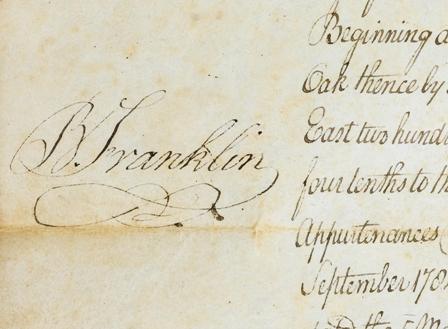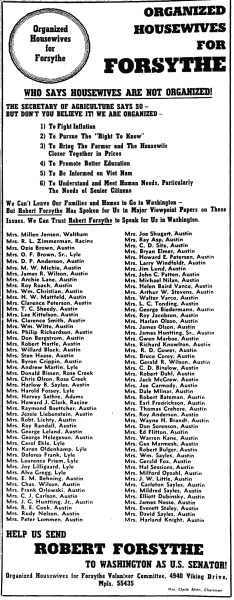In Philadelphia, PA, Freeman’s auction house reports that “one great history lover” was dedicated to procuring every single item in yesterday’s Historic Muhlenberg Property from a Private Collection auction. The private collector, who wished to remain anonymous, was successful — spending $646,063 to ensure the entire collection would remain together and be added their own private collection of Revolutionary War materials.
This auction contained items from the Muhlenberg family, having descended through the family, which included an extensive archive representing the public and sometimes private lives of Pennsylvania’s leading German family from the period of the American Revolution through the Civil War.
The collection’s signature piece was The Grand Division of Color of the Eighth Virginia, a Regimental flag which descended in the family of the Regiment’s original commander, Peter Muhlenberg (1746-1807), the legendary “Fighting Parson”, who served in the Continental Army, as Colonel., Brigadier-General and finally as a Major-General. (His robe was featured on PBS’s History Detectives.)
 The flag, which sold for $422,500, is cited in the 1849 biography, The Life of Major-General Peter Muhlenberg of the Revolutionary Army by descendant Henry Augustus Muhlenberg. (Henry Augustus Muhlenberg was the son of Henry Augustus Philip Muhlenberg and grandson of Henry Muhlenberg Jr. (1753-1815), General Peter’s brother.) The flag’s description reads as follows on pages 338-339:
The flag, which sold for $422,500, is cited in the 1849 biography, The Life of Major-General Peter Muhlenberg of the Revolutionary Army by descendant Henry Augustus Muhlenberg. (Henry Augustus Muhlenberg was the son of Henry Augustus Philip Muhlenberg and grandson of Henry Muhlenberg Jr. (1753-1815), General Peter’s brother.) The flag’s description reads as follows on pages 338-339:
The Eighth Virginia Regiment was generally known as the ‘German Regiment.’ By that name it is designated in the Orderly books of Generals Washington and Muhlenberg during the campaigns of 1777, 1778 and 1779….The regimental colour of this corps is still in the writer’s possession. It is made of plain salmon-coloured silk, with a broad fringe of the same, having a simple white scroll in the centre, upon which are inscribed the words, “VIII Virg(a) Reg(t)
Samuel M. “Beau” Freeman II, Freeman’s Chairman and specialist in Americana said, “Revolutionary battle flags are rare and those in private hands are almost unknown or only fragments have survived–this is an extraordinary discovery. Muhlenberg is a legendary hero of the Continental Army and this flag represents his Virginia regiment. This flag pre-dates the Tarleton Colors and may be the last remaining battle flag in private hands.”
Among the lots were hundreds of letters, including historical content concerning the political affairs of U.S. Congressman and diplomat Henry Augustus Phillip Muhlenberg, General Muhlenberg’s letters to his brothers about his military role, several letters from sitting presidents, and a document signed by Benjamin Franklin.
Called “especially illuminating” was the General Order and Brigade Order Book, kept by General Peter Muhlenberg’s orderly from May through November, 1777, a period that encompasses the battles of Brandywine and Germantown. That book set an auction record when it sold for $98,500.
 As for the pieces from the Muhlenberg collection remaining together, Lisa Minardi, author of Pastors & Patriots: The Muhlenberg Family of Pennsylvania, Assistant Curator at Winterthur, and the president of The Speaker’s House (a preservation group that overseeing the restoration of Frederick Muhlenberg’s home), said it best. “This collector is my hero! It’s amazing that these items descended in the family and are now staying together in a single collection.”
As for the pieces from the Muhlenberg collection remaining together, Lisa Minardi, author of Pastors & Patriots: The Muhlenberg Family of Pennsylvania, Assistant Curator at Winterthur, and the president of The Speaker’s House (a preservation group that overseeing the restoration of Frederick Muhlenberg’s home), said it best. “This collector is my hero! It’s amazing that these items descended in the family and are now staying together in a single collection.”








